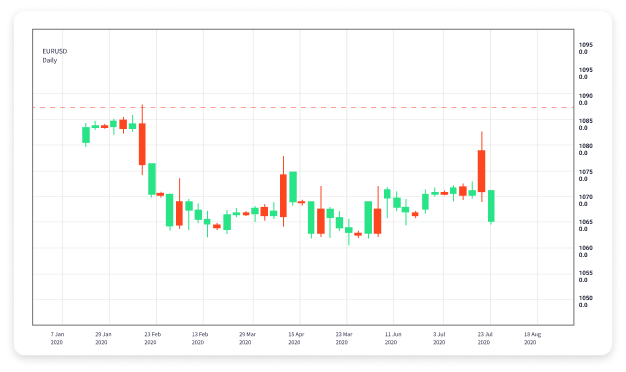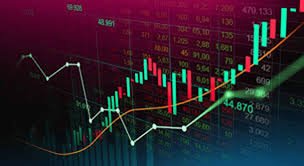
Unlocking the Secrets of Forex Trading Business
The forex trading business has become one of the most lucrative and exciting arenas for investors and traders alike. In today’s increasingly globalized economy, the foreign exchange market offers opportunities that were once accessible only to institutions and banks. With the rise of technology, anyone can enter the market with relative ease. However, success in forex trading requires more than just an account with a broker; it requires knowledge, strategy, and discipline. This article aims to provide insights into the forex trading business landscape, outlining essential tips and strategies for anyone considering venturing into the world of forex. To get started, exploring various Indian trading platforms is highly recommended. One such resource is forex trading business Indian Trading Platforms, which can guide new traders in navigating the complexities of the market.
Understanding the Forex Market
The forex market, or foreign exchange market, is the largest and most liquid financial market in the world, with daily trading volumes exceeding $6 trillion. It operates 24 hours a day, five days a week, allowing traders to buy and sell currencies at any time. The market consists of various participants, including central banks, commercial banks, financial institutions, hedge funds, corporations, and individual traders. Understanding the fundamental mechanics of the forex market is crucial for anyone interested in trading. Currency pairs, such as EUR/USD or GBP/JPY, represent the value of one currency in relation to another and form the basis for trading activities.
Getting Started in Forex Trading
Before diving headfirst into the market, potential traders should take several preliminary steps. Firstly, education is key. There are numerous resources available online, including courses, webinars, and e-books that cover the basics of forex trading. Familiarizing oneself with concepts such as pips, leverage, margins, and different order types is essential. Additionally, aspiring traders should open a demo account to practice trading without risking real money. Most brokers offer demo accounts that allow users to simulate trading conditions and develop their strategies.
Create a Trading Plan
A well-defined trading plan is a fundamental requirement for long-term success in forex trading. This plan should include trading goals, risk tolerance, and specific strategies that dictate when to enter or exit trades. Moreover, traders should establish rules for money management, determining how much capital to allocate to each trade. A key aspect of any trading plan is the trader’s psychology. Emotions can often cloud judgment, leading to impulsive decisions. By sticking to a predetermined plan, traders can minimize emotional influences and stay disciplined, even in volatile market conditions.
Technical Analysis vs. Fundamental Analysis
Traders often utilize two primary types of analysis when making trading decisions: technical and fundamental analysis. Technical analysis focuses on price patterns and indicators, using charts to forecast future price movements based on historical data. Traders might employ various tools such as moving averages, Fibonacci retracements, and relative strength index (RSI) to identify potential trade opportunities.

On the other hand, fundamental analysis examines economic indicators, political events, and other factors affecting currency values. News events, such as interest rate changes, employment reports, and geopolitical developments, can significantly impact currency markets. Successful traders often combine both types of analysis to make informed decisions.
Risk Management Strategies
Effective risk management is paramount in forex trading. The allure of high returns comes with the potential for substantial losses. Traders should adopt strategies such as setting stop-loss orders to limit potential losses on trades. Furthermore, diversifying trading positions and avoiding over-leveraging can greatly reduce risk exposure. Implementing proper risk management techniques is crucial for preserving capital and ensuring longevity in the trading business.
Choosing a Forex Broker
Selecting the right forex broker is crucial for any trader. Factors such as regulation, trading fees, customer support, and available trading platforms should be carefully considered. A regulated broker offers a level of security for traders, ensuring that their funds are safeguarded against fraudulent activities. In addition, traders should evaluate the broker’s trading platform, as ease of use and reliability can significantly impact trading performance.
The Importance of Continuous Education
The forex market is constantly evolving; therefore, traders must stay updated on market trends, economic indicators, and new trading strategies. Continuous education helps traders adapt to changing market conditions and improve their trading game. Engaging with trading communities, subscribing to financial news outlets, and participating in webinars can provide valuable insights and foster growth.
Common Mistakes to Avoid
Many new traders fall victim to common pitfalls that can hinder their success. Emotional trading, chasing losses, and neglecting a trading plan are frequent mistakes. Traders must remain patient and disciplined, recognizing that consistent profits require time and effort. Additionally, not utilizing demo accounts before trading live can lead to costly mistakes; practice is essential for understanding market dynamics.
Conclusion
The forex trading business offers opportunities for those who are willing to invest time and effort into learning the market. Whether you are a beginner or an experienced trader, having a solid understanding of market mechanics, a robust trading plan, and effective risk management strategies are vital components for long-term success. By approaching forex trading with discipline and a commitment to continuous learning, traders can navigate the complexities of the market and work towards achieving their financial goals.
